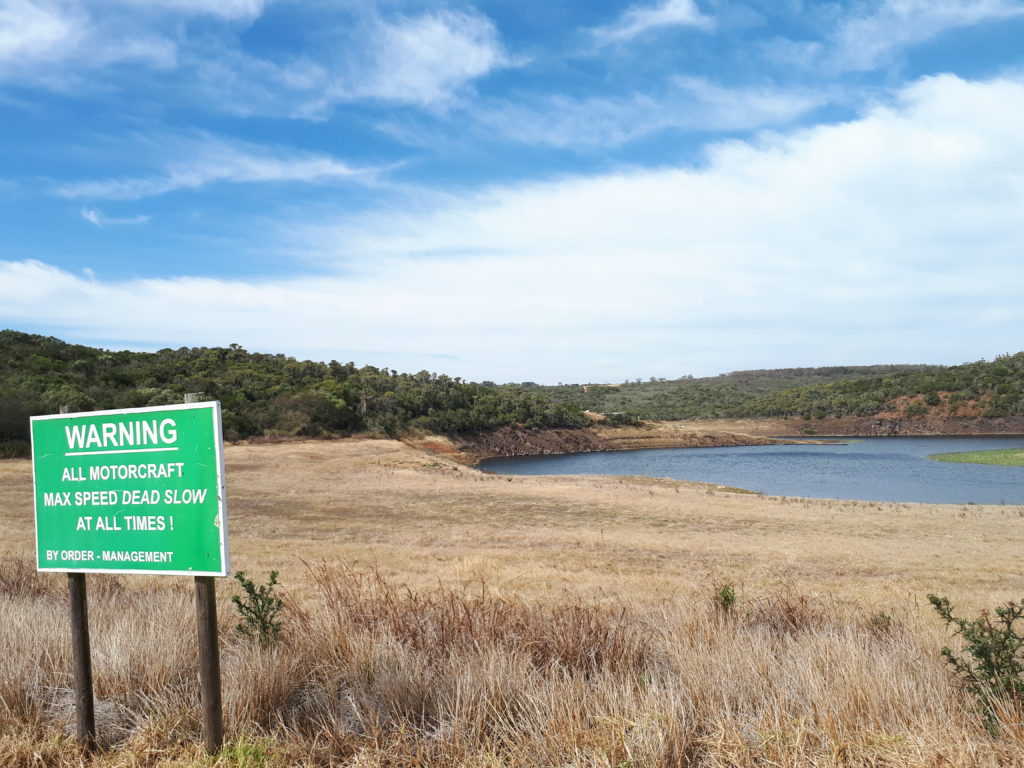Two months this year, water at certain sites in Makhanda (Grahamstown) was unsafe to drink. During January and March 2019 the levels of coliform and e.coli bacteria at some taps in Makhanda did not comply to the SANS 241 national drinking water standard. In some cases bacterial counts were 20 times over the safe limit.
This alarming reprise of water quality failures was reported to councillors in the Community Safety and Social Services portfolio committee on 15 May. Grocott’s Mail has reported on similar treatment failures during November and December 2018, as well as May 2018.
The municipality says the cause of this year’s treatment failures was a faulty chlorination system.
In January 2019, the total coliform count as measured at the Extension 7 Clinic, the Indoor Sport Centre in Joza, the communal tap in J Street and at the Riebeeck East municipal office was 200 cfu/100ml. The permissible total coliform range for drinking water, according to SANS 241: 2015 is 0-9 cfu/100ml.
Colony forming units per 100ml (cfu/100ml) is the unit to estimate the number of bacteria that could divide and multiply in a sample. The total coliform count includes bacteria found in the soil, in dams and other surface water, as well as in human and animal waste. It’s an indication of contamination that has the potential to cause disease. Also in January 2019, the J Street tap tested at a level of 4 cfu for e.coli; the Riebeeck East municipal office 16. No amount of e.coli is considered safe to ingest according to SANS 241.
February 2019 tests showed levels had returned to within the SANS 241 safety norms at all sites except J Street and the Indoor Sport Centre (total coliform at 11).
In March, high e.coli levels were 29 (Extension 7 Clinic), 22 (J Street tap) and 6 (Indoor Sports Centre). (All readings should be zero for e.coli)
High total coliform counts in March were 118 (Extension 7 Clinic), 89 (J Street tap) and 200 (Indoor Sports Centre). The Alicedale Municipal Office measured 89 for total coliform in March.
Grocott’s Mail asked Makana if communities were informed of the results and possible health risks at the time, and did not receive a response.
Tests are done by Makana’s Environmental Health Manager. Environmental Health falls under the Community Safety and Social Services portfolio. The test results are given to the Infrastructure Directorate, which manages the treatment plants, for action.
Makana has been without an Infrastructure Director since Dali Mlenzana was suspended pending the investigation of allegations of financial misconduct. An acting director has been deployed for the past month through Cogta’s Municipal Infrastructure Support Agency (MISA).
Makana spokesperson Anele Mjekula said that during this period there had been a faulty chlorination system which had since been completely overhauled.
“Proper dosing of chlorine to maintain minimum free chlorine residual value of not less than 0.3 mg/l at the consumer’s point of use normally ensures there is no incidence of e.coli or coliforms…” Mjekula said. “Regular maintenance on the equipment ensures that dosing is kept consistent.”
“We have been promised a compliance report by [Friday 23 May] 13h00 for April and May,” Mjekula said. “However, from operational monitoring results, free chlorine, turbidity and pH are all well within SANS 241.”



